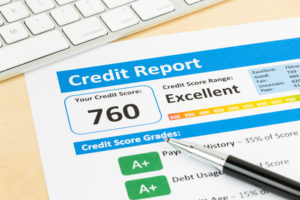Credit scores have a big impact on people’s lives because they influence whether they qualify for all sorts of financial services, like house loans and credit cards. Many people find changing their scores difficult because they do not fully understand how the scores are calculated. A particular formula is used to calculate the scores, which takes into account how timely the person’s bill payments are, the amount of debt they owe, how long their credit history is, the number of new accounts they have, and how diverse their credit accounts are. Being aware of what factors are used to compile credit reports will help people to achieve an acceptable score, and obtain better loan rates and higher credit limits.
financial services, like house loans and credit cards. Many people find changing their scores difficult because they do not fully understand how the scores are calculated. A particular formula is used to calculate the scores, which takes into account how timely the person’s bill payments are, the amount of debt they owe, how long their credit history is, the number of new accounts they have, and how diverse their credit accounts are. Being aware of what factors are used to compile credit reports will help people to achieve an acceptable score, and obtain better loan rates and higher credit limits.
Credit scores can range from 850 to 300, with 850 being the most reliable for lenders and 300 the least reliable. Higher numbers are therefore best for applicants to qualify for better loan rates. People with a score of less than 500 will struggle to obtain any kind of loan, like here.
Poor credit scores often arise for a variety of reasons. Failing to pay a bill because of financial issues, being disorganized and not paying a loan back in time, or not receiving late payment letters because of an address change can all result in credit score depreciation. Books like ‘Credit Secrets’ by Scott Hilton can help to improve credit scores considerably. Here are some other tactics:
It is best to avoid using all available credit. Most experts believe that people should use a maximum of thirty percent at any one time, and setting up new accounts or cards to access more credit is unlikely to help. Typically, if someone opens several new cards simultaneously, this might be regarded as reckless behavior and will damage their score. Rather, people are advised to limit themselves to two cards, and ensure that they owe under thirty percent of the credit available on those cards.
Also, it is vital to carefully read a comprehensive credit report that displays both the score and any late payment records, delinquent accounts, and other data that might be responsible for the score dropping. These reports can be acquired from the websites of credit recording agencies, many of which are required by law to offer a free annual report. Gaining an accurate picture of the amount of liability and credit that exists will help to formulate an action plan to improve a credit score.
People who have unpaid bills should start to repay these as soon as possible. Nonetheless, once a bill goes into default, it might appear on someones credit report for as long as seven years in many instances, even after it has been fully settled. Then again, if people fail to make any payments on these accounts, they are likely to have poor credit permanently. In some situations, people might suffer financial problems and be unable to make full payments. It is always wise to speak to creditors about this; because some creditors can give borrowers extensions and not report their inability to make timely payments.
Credit reports should be thoroughly checked for discrepancies. If a late payment is reported on a credit card, for example, when there is evidence to refute this, borrowers should get in touch with the reporting agency and lender to rectify the error. If a payment is late due to a dispute, it is crucial to determine whether the credit report is amendable after the dispute is resolved. It is dangerous to assume that reporting agencies and lenders are always right. Looking for errors and taking swift measures to get a report changed can help to improve a credit score considerably.
Lastly, remember that there are many types of credit. Late payments to student loan lenders or doctors can negatively affect a person’s credit score. It is advisable to pay for things like medical expenses as they occur, to avoid inadvertently falling behind with these bills. Students who take loans out should make sure that they pay on time, and try to renegotiate their payment terms if they can not make a payment when they should do.
Lenders regularly analyze credit scores to decide whether interest rates need changing, whether credit limits for certain clients need adjusting, or to provide attractive rates to potential clients with high credit scores. Prospective borrowers can improve a bad credit score by opening their credit history and repaying their debt in a timely fashion. By the same token, borrowers will damage their credit score in the event that they default on loans, or fail to make arranged payments. High credit scores can also result in better insurance premiums for things like home and car insurance.